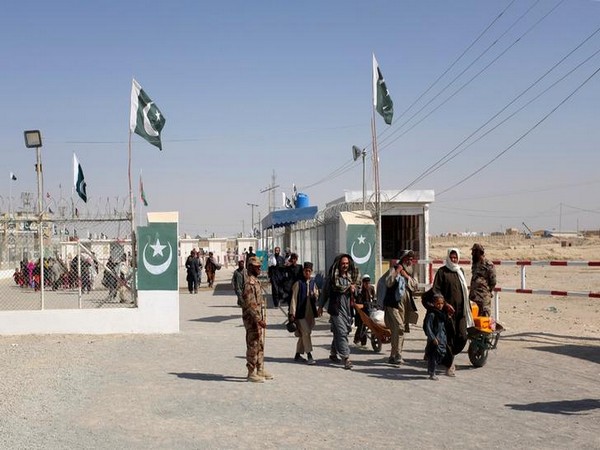

Thousands of people are left jobless due to the closure of the market at Taftan, for the last one-year — the border of Iran and Pakistan, reported Pak vernacular media Intekhab Daily.
The manual workers are unable to get any work for them. Getting two times meals has become a problem for them. Even small traders are suffering from the financial crunch. They have nothing for trade.
Their only business was the across-border business which the government has stopped. Although at the Pak-Iran border of Taftan a new terminal with modern facilities was constructed last year but its opening is delayed due to the interference of some influential persons, who don’t want the border to be opened, reported Intekhab Daily.
A sit-in protest was held in September by regional political parties against prolonged closure of trade and travelling corridors at Taftan border in Chagai district in Pakistan’s Balochistan province, local media reported.
The protest was held by Anjuman Tajiran, the labour union and members of different political parties. This was the second protest sit-in this month staged by the traders against the blockade of the trade corridors, Dawn reported.
Earlier in October, the Iranian authorities closed the border with Pakistan at Taftan after clashes between the protesters and security forces in Zahedan, the capital city of Sistan-Balochistan, reported Dawn.
According to sources in the Federal Investigation Agency (FIA), the immigration and transit gate for trade and tax-free-trade gate, Zero Point, remained closed from the Iranian side.
In July, the Quetta Chamber of Commerce and Industry (QCCI) has called upon the authorities to start business activities at the Bazarcha border terminal at the Taftan border to bring trade and job opportunities to residents, reported Dawn.
Meanwhile, former Pakistan Prime Minister Imran Khan on Saturday warned that his “country is sinking” as he announced that PTI governments in Punjab and Khyber Pakhtunkhwa provinces will dissolve their assemblies on December 23 to pave the way for fresh polls.
“Till the time free and fair elections are not held, we are all afraid that the country (Pakistan) is sinking,” the Pakistan Tehreek-e-Insaf (PTI) chairman Imran said in a video address, with Punjab Chief Minister Parvez Elahi and Khyber Pakhtunkhwa Chief Minister Mahmood Khan by his side.
At the beginning of his address, Imran Khan bemoaned about the country’s current economic situation under the Shehbaz Sharif government. Imran said a government with a fresh mandate and the nation’s support behind it would be able to raise its stature, Dawn reported.
Pakistan’s economy continues to deteriorate due to structural imbalances as several decisions regarding the economic policies like taxes, subsidies etc in the South Asian country have remained unaddressed over time, Dr Sakariya Kareem said while writing for Asian Lite.
Islamabad’s foreign exchange crisis has worsened as reserves have been depleted to a critical low of USD 8 billion, compared to over USD 20 billion in August 2021, undermining the country’s ability to make international payments.
Foreign Direct Investment (FDI) fell by 52 per cent in the first four months of the current fiscal year FY23, showing the country’s dismal economic health. A sustained drop in remittances is adding to Pakistan’s currency woes.
Remittances totalled USD 9.9 billion in July-October 2022, down 8.6 per cent from USD 10.827 billion in the same period last year. If the current trend continues, overall remittances in FY23, which ends in June, are expected to be close to USD 30 billion, down from USD 31 billion in FY 2022, Asian Lite reported.
Meanwhile, Pakistan’s textile exports have fallen to a 17-month low since May 2021, owing to a global economic slowdown in textile and clothing demand in Europe, the United Kingdom, and the United States, as a result of elevated price inflation, rising energy expenditure, and surging credit costs in the West.
Despite Pakistan’s finance minister Ishaq Dar’s repeated assurances for Sukuk payment, the international market is not willing to trust the assurances as the nation’s economy struggles to avoid default by borrowing more from the markets, donors, commercial banks and friendly nations.